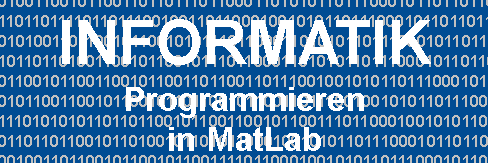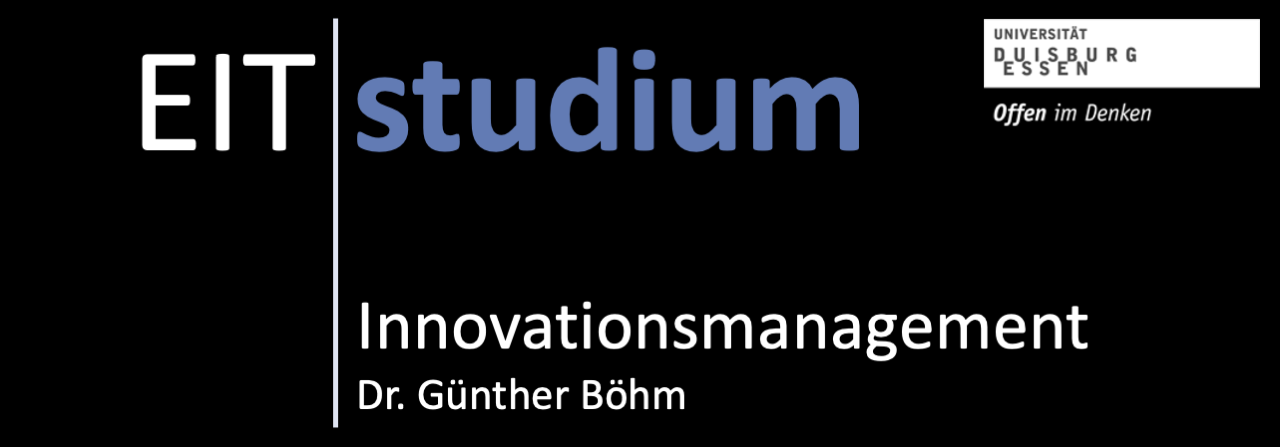InnovationsWerkstatt - Future Mobility and Health Care– Disruptive Innovation (FMHC)
Dipl.-Ing. Rainer Schüller-Fengler, Deutsches Zentrum für Luft- und Raumfahrt e.V. (DLR), Technologiemarketing: Markterschließung - Ideenmanagement und Projektkoordination
Veranstaltungsar: Online-Seminar (ggf. Blockseminar)
Semester: Sose 2020
Erwartete Teilnehmer: 16
Credits: 4
Sprache: Deutsch
Max. Teilnehmer: 16
Online-Seminar: Die Hauptsession findet jeden Donnerstag von 18:00-20:00 h statt. Alle angemeldeten Teilnehmer (Moodle-Anmeldung) erhalten eine Einladung und Zugangsdaten zur Video-Konferenz (Skype oder Jitsi).
Ergänzend werden mit den einzelnen Gruppen, die sich im Seminar bilden, gesonderte Online-Arbeitstermine ausgemacht.
Sollte je nach aktueller Entwicklung in Sachen Covid-19 ein Präsenztermin wieder möglich sein, werden folgende Tage für das Blockseminar vorgesehen.
Samstag 16. Mai 09-17 h
Sonntag 17. Mai 09-17 h
Samstag 16. Juni 09-17 h
Sonntag 17. Juni 09-17 h Mit dem Thema digitaler Wandel werden Themen wie Autonomes Fahren, Connected Mobility, 3-D-Druck, Künstliche Intelligenz, 5G, Virtual und Augmented Reality, Big & Smart Data, E-Mobility, Blockchain, Sharing Economy angeführt, die einzeln oder im Verbund konventionelle mit neuen Geschäftsmodellen Märkte disruptiv verändern können. Es eröffnet ein großes Feld an Gestaltungsmöglichkeiten für neue innovative Produkte und Services in unseren Lebensbereichen. Mit dem Online-Seminar soll ein kleines InnovationEcosystem geboten werden, in dem gemeinsam Neues erdacht, exploriert und erprobt wird.
Das Seminar folgt der Leitfrage:
Wie können wie das Leben und die Mobilität in Metropolen oder in ländlichen Gebieten attraktiver, umweltfreundlicher und lebenswerter machen?
Insbesondere wird ein Fokus auch auf die Mobilität in Verbindung mit dem Thema Gesundheit gelegt.
Ziel dieser Innovationswerkstatt ist es, kreative und unkonventionelle Ideen zu generieren, neue Produkte und Services zu designen und eine mögliche Roadmap zur Realisierung zu gestalten.
Gemeinsam werden in der Innovationswerkstatt die Phasen des Design- und Innovationsprozesses beschritten. Das Seminar setzt dabei bei aktuellen sozialen, kulturellen und politischen Trends und neuesten Technologieentwicklungen an.
In Teams mit 3 bis 5 Studierenden sollen neue Entwicklungen geprüft werden, um sich inspirieren zu lassen, sich aus unterschiedlichen Perspektiven und Sichtweisen dem Themenkomplex anzunähern und Lücken, Kundenprobleme und Handlungsoptionen zu suchen. Anschließend sollen Ideen mit Marktpotential zielführend generiert und beurteilt werden. Die erarbeiteten finalen Produkt- oder Servicekonzepte werden vor einer internen Jury präsentiert.
Über die Kreditierung hinaus erhalten die Studierenden ein Teilnahmezertifikat.
Themen:
Kollaboratives digitales Arbeiten: Recherche , Einsatz und Erprobung digitaler Tool (Slack, Mindmaster, Meistertask, Trello, etc) Videokonferenzing
Agile Methoden und Techniken designbasierten Denken und Handelns zur beruflichen Anwendung in Wirtschaft und Wissenschaft; Canvas, Customer Journey Mapping, Design Sprints, Customer-Centered Design, Strukturieren und Präsentieren eigener Ideen; praktische Ausarbeitung der Produkt-/Geschäftsmodelle; Identifikation von Marktchancen, Evaluation, Design Thinking, Unternehmensstrategie, Business Modell Innovation, Marketing
Lernziele:
Überblick zu Modellen, Methoden und Prozesse des Design- und Innovationsmanagement, Teamorientierung, Förderung von Kreativität, unternehmerisches Denken, zielorientierte Projektarbeit
Leistungsnachweis: Gruppenarbeit / Präsentation incl. Dokumentation (70/30)







